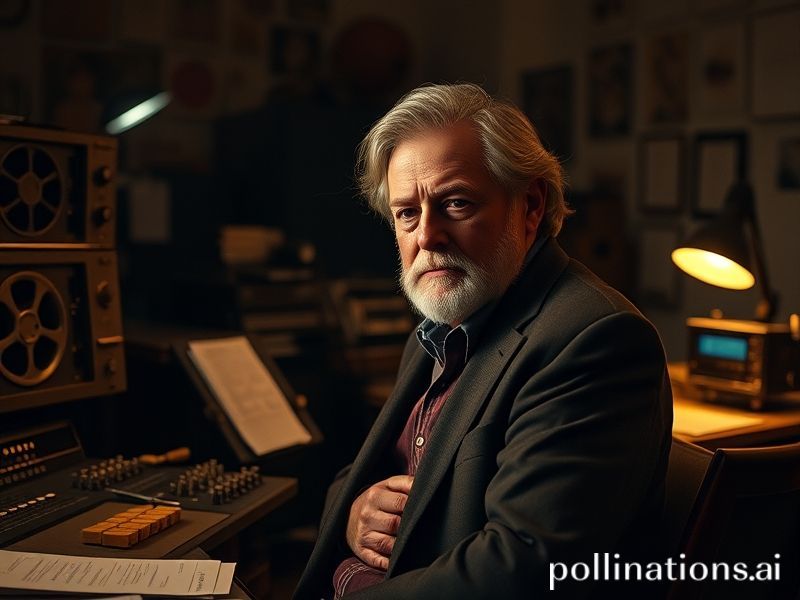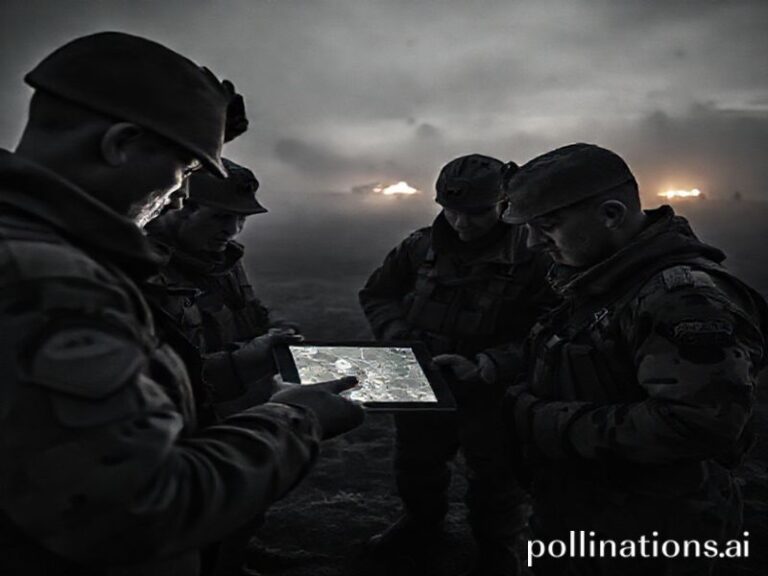Lord of the Soft-Power Rings: How David Puttnam Weaponized British Charm and Then Tried to Disarm the World
The Man Who Sold Britishness to the World and Still Feels a Bit Guilty About It
Lord David Puttnam, the former film producer turned unelected conscience of the House of Lords, has spent the last four decades trying to convince the planet that culture is not a garnish on the platter of geopolitics but the main course. At 83, he now pops up in UNESCO boardrooms, EU committees, and the occasional film festival jury like a well-tailored ghost of empire, gently reminding us that soft power is simply hard power wearing tweed.
Back in the late 1970s, when Britain’s biggest export was still mild sarcasm, Puttnam green-lit a modest project called “Chariots of Fire.” The film—equal parts hymn and hallucination—won four Oscars and, more importantly, sold the idea that Britain could be both virtuous and victorious without actually invading anyone. Overnight, every marketing department from Mumbai to Minneapolis discovered the profit margin of “heritage.” Tourist boards slapped Union Jacks on tea towels; airlines piped Elgar into boarding lounges; even the French began to suspect that running in slow motion across a Scottish beach might be a form of moral superiority.
The global implications were subtle but seismic. Hollywood, sensing a competitor, counter-programmed with its own brand of national mythmaking—bigger explosions, louder eagles—while smaller nations realized they too could weaponize their past for Netflix specials and airline ads. Thus began the great arms race of curated nostalgia, a conflict fought not with tanks but with tasteful serif fonts. Puttnam, ever the repentant arms dealer, has since dedicated himself to regulating the very soft-power machinery he helped unleash.
These days he chairs UNESCO’s “Education for Sustainable Development” committee, a title so virtuous it practically hums with self-satisfaction. There he argues—politely, devastatingly—that without media literacy every teenager from Lagos to Lahore will grow up believing democracy is a dating app and critical thinking a brand of bottled water. The irony, of course, is that he once made his fortune selling exactly the kind of seductive national narrative he now warns against. Watching Puttnam lecture Silicon Valley executives on algorithmic transparency is like watching the inventor of the Molotov cocktail give a TED talk on fire safety.
Europe listens because Europe must. With the continent’s cultural budgets shrinking faster than the polar ice caps, Puttnam’s refrain—“invest in imagination or be prepared to import someone else’s”—lands with the dull thud of fiscal inevitability. Meanwhile, China has adopted the Puttnam playbook wholesale, funding Confucius Institutes and blockbuster co-productions that make the Great Wall look less like a defensive barrier and more like an extended opening credit sequence. The result is a planet where every nation-state now has its own streaming service and a bespoke historical grievance, lovingly color-graded.
Yet the broader significance may be more intimate. In an age when attention spans have been reduced to the half-life of a TikTok dance, Puttnam still insists stories are long-haul flights, not connecting shuttles. He talks about “trust architecture” the way other octogenarians talk about arthritis: inevitable, painful, and best managed with daily stretching. His latest campaign, “World Literacy Foundation 2.0,” proposes treating disinformation as a communicable disease—one requiring vaccines made of narrative antibodies and public-service plot twists.
So the next time you’re trapped on a transatlantic flight, scrolling through an in-flight menu of national epics, spare a thought for Lord Puttnam. Somewhere over Greenland he’s probably drafting another white paper, sipping a Bloody Mary that tastes faintly of penance. He knows we are all, in the end, both consumers and consumed—our identities repackaged, retweeted, and resold before we’ve even cleared immigration. And still he persists, the last honest huckster in a marketplace of curated ghosts, reminding us that the only empire truly worth building is the one we can bear to re-watch.







